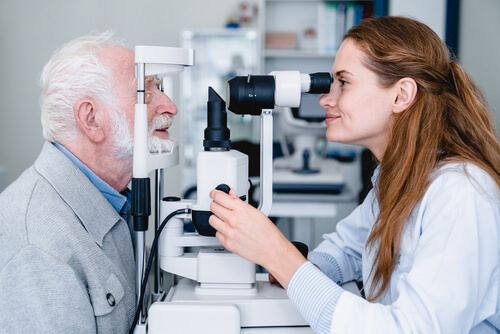
When was the last time you had an eye exam? If it wasn’t within the last year, it’s time to schedule another one.
Eye exams are the best way to protect your eyes and your eyesight. Some eye conditions can damage your vision seemingly overnight.
But many of these conditions are preventable or treatable with a proper diagnosis. Keep reading to learn about three reasons why you should schedule frequent eye exams.
Eye Exams Provide Preventative Care
If you develop a debilitating eye condition, there is one way to guarantee vision loss. That’s by not seeing your eye doctor regularly.
Most eye conditions are treatable, especially with early diagnosis. But, if you never see your eye doctor, they have no idea how healthy your eyes are.
Almost every condition that can damage your eyes is detectable during an eye exam. If they find an issue, they can provide treatment options immediately.
Some diseases and disorders can cause rapid damage to your eyes. Others develop slowly and don’t need treatment until they are more mature.
Either way, your eye doctor will know the proper course of treatment for whatever is going on in your eyes. Everything from dry eyes to cataracts, glaucoma, and diabetes is treatable.
But, you need to see your eye doctor. Otherwise, you don’t know how healthy your eyes are and if you need medical treatment.
Eye Exams Can Prevent Vision Loss
Glaucoma by itself is enough reason to have frequent eye exams. Also called the silent thief of sight, it is one of the scariest eye diseases you can develop.
It builds undetectable pressure in your eyes over time. Then, when that pressure gets high enough, it presses on your optic nerve, damages it and your vision.
The optic nerve is a critical part of eyesight. It sends light signals to your brain, which interprets the light and creates the images you see.
Without your optic nerve, the light can’t reach your brain, and you can’t see anything. And, if you have the most common type of glaucoma, you have no idea that your intraocular pressure or IOP is steadily climbing.
Until it exhibits symptoms, it is difficult or impossible to know you have glaucoma. And when it does exhibit symptoms, it has damaged your optic nerve and your eyesight.
Once glaucoma begins to affect your vision, you already have permanent vision loss. There is no cure for glaucoma, but it is treatable.
Medications and other interventions can help you maintain healthy IOP despite glaucoma. But, the only way to get this vision-saving treatment is by having at least one eye exam per year.
Without a diagnosis, glaucoma can develop undetected and then steal your sight. But with a diagnosis early in its development, your eye doctor can help you keep your vision.
Eye Exams Give You Clear Vision, No Matter What
Even if you don’t have glaucoma, your eyesight can deteriorate over time with few symptoms. Your brain can fill in images even if your eye health is failing.
As you age, you can develop refractive errors like nearsightedness, farsightedness, and astigmatism. These can impair your vision, but you may not know that your eyesight is worsening unless they come on rapidly.
During an eye exam, your eye doctor will test your visual acuity and the strength of the muscles in your eyes. These tests will point out if something is wrong.
When they notice vision issues, they can recommend treatment. Glasses or contacts are the most common, and permanent vision correction is also an option.
But, the only way to have these options is by having an eye exam. Otherwise, you could be walking around with compromised eyesight without knowing it.
Is it time to have your eyes checked? Schedule an appointment at Levin Eyecare in Glyndon, MD. Be sure that your eyes are healthy and fully functioning!

